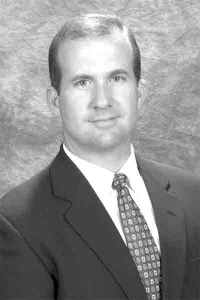By JEFFREY J. MCKENNA

It is possible to add all your assets and debts and find that you owe more than you own! When formulating your estate plan, it is good to figure what you own and what you owe before deciding what to leave to whom.
What to do? First, don’t panic. Your creditors truly can’t touch you. You may, however, worry about how the bills that trickle in, and sometimes flood in, after your death will affect your loved ones. Your spouse will continue to be responsible for debts you incurred jointly—such as the house, the car and all others.
But if you are the second spouse to die, what will your children and other loved ones owe your creditors? After your death, banks will want the money you still owe on your house and your car. Your credit card companies will wonder where your monthly payment has gone. Hospitals will want their balances paid. Utility companies will send out their usual monthly bills.
Who is responsible for paying? You owed this money. After your death, those debts will be passed on to your estate. Banks might repossess, if no one is paying what you owed on the car and the house. Credit card companies and other creditors may place liens against your estate. If you had nothing to leave in the first place, these organizations are pretty much out of luck. Your good-hearted and responsible children may feel compelled, when faced with mounting debts, to start paying them off themselves.
This is absolutely unnecessary–and unfair. They didn’t incur these debts. You did. Their failure to make good on what you owe will in no way (despite what some overzealous collection agencies may say) affect their own credit histories. It is not necessary for them to use their assets to pay your personal bills. Every large lending corporation includes a substantial line item in the “expenditures” section of its annual budget for write-offs, or uncollectible debts. Yours will be one of these.
Of course you have a responsibility to try to live within your means and to try to ensure that all of your bills are covered. However, sometimes people go through periods of unemployment or illness or hard luck that was unpredictable and unavoidable. If this occurs, your children should know that they are not personally liable to pay your debts.
Jeffery J. McKenna is a local attorney serving clients in Nevada, Arizona and Utah. He is a shareholder at the law firm of Barney McKenna Olmstead & Pack, with offices in Mesquite and St. George. If you have questions you would like addressed in these articles, you can contact him at (702)346-1615 or jmckenna@barney-mckenna.com.










